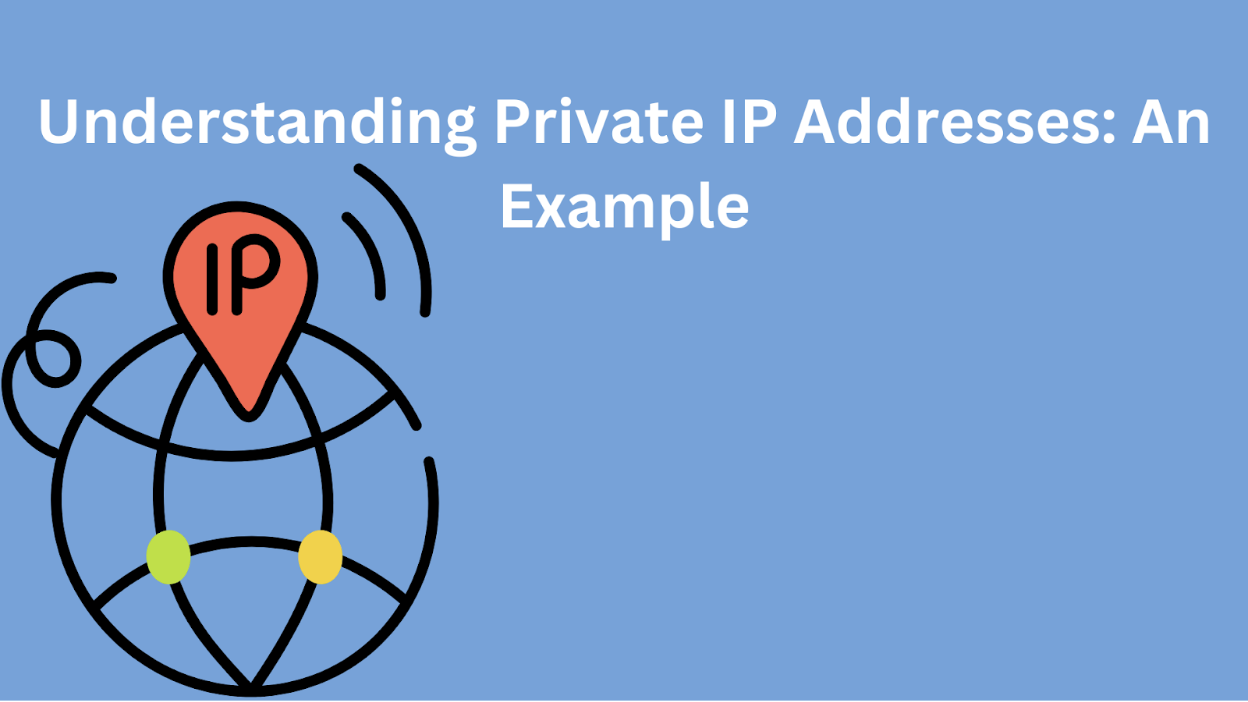In networking, IP addresses play a crucial role in identifying devices connected to a network. There are two types: public and private. While public IP addresses are used to identify devices on the Internet, private IP addresses are used within a private network. In this blog post, we’ll explore private IP addresses and their significance, and provide an example to clarify their usage.

A private IP address is an IP address that’s reserved for use within a private network. These addresses are not routable on the internet, meaning they are not directly accessible from outside the network. Instead, they are used for internal communication within the network and are designed to provide security and privacy.
Let’s consider a home network as an example. In a typical home network setup, the router acts as a gateway between the home’s devices and the internet. The router assigns private IP addresses to each device connected to it. These private IP addresses are used for communication within the home network and are not visible or accessible from outside the network.
For instance, if a home network has three devices—a computer, a smartphone, and a smart TV—the router might assign the following private IP addresses:
These addresses are reserved for use within the home network and cannot be used to access these devices outside the network.
Using private IP addresses offers several benefits, including:
Private IP addresses are not directly accessible from the internet, providing a layer of security for devices within the network.
By using private IP addresses internally, organizations can conserve public IP addresses, which are limited in number.
Private IP addresses allow for easier management of devices within a network, as they can be assigned dynamically by a router using DHCP (Dynamic Host Configuration Protocol).
Private IP addresses are an essential component of networking, providing a secure and efficient way for devices within a private network to communicate. Understanding how they work and their benefits can help developers design and manage networks more effectively.
No, private IP addresses are not routable on the internet. To access the internet, devices in a private network use Network Address Translation (NAT) to translate private IP addresses to a public IP addresses.

Private IP addresses are used within a private network and are not directly accessible online. Public IP addresses, on the other hand, are routable to identify devices on the internet.
Yes, since private IP addresses are not globally unique, two devices on different private networks can have the same private IP address without conflict.
Yes, to avoid conflicts and ensure proper communication within the network, each device on a private network should have a unique private IP address.